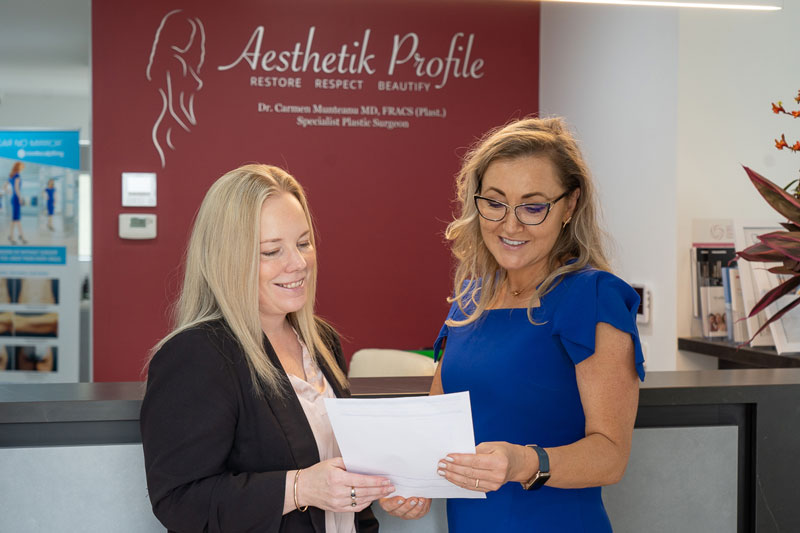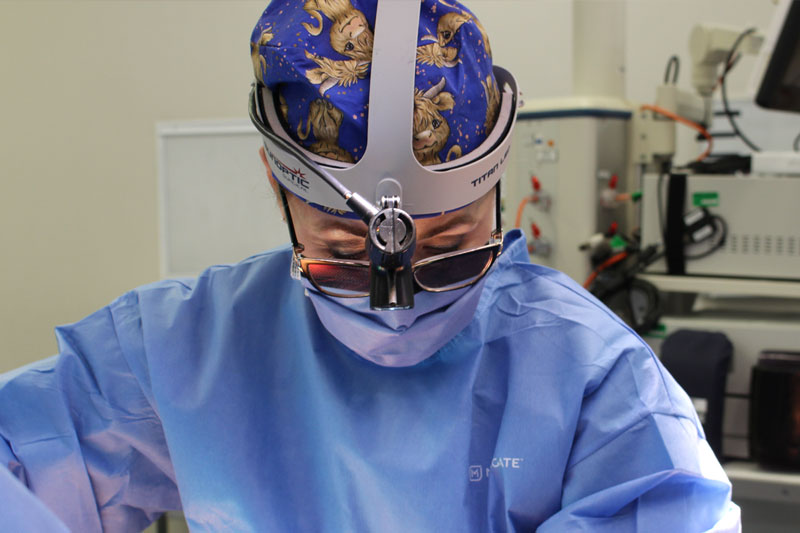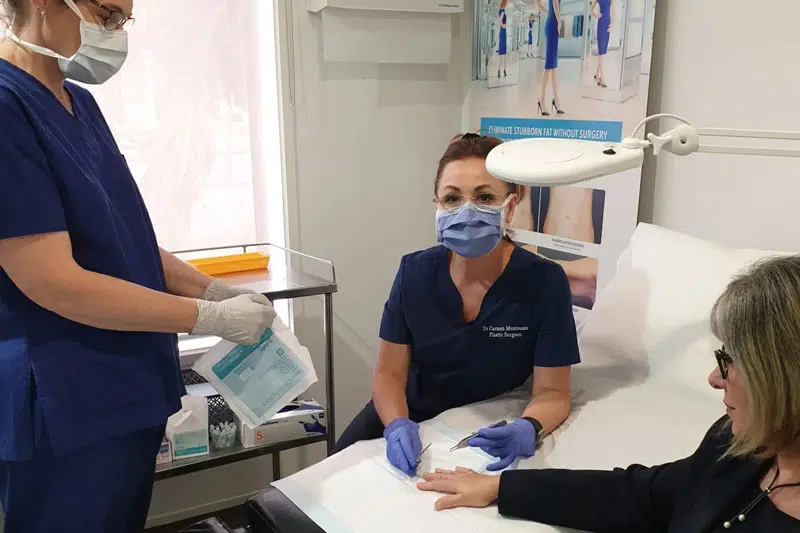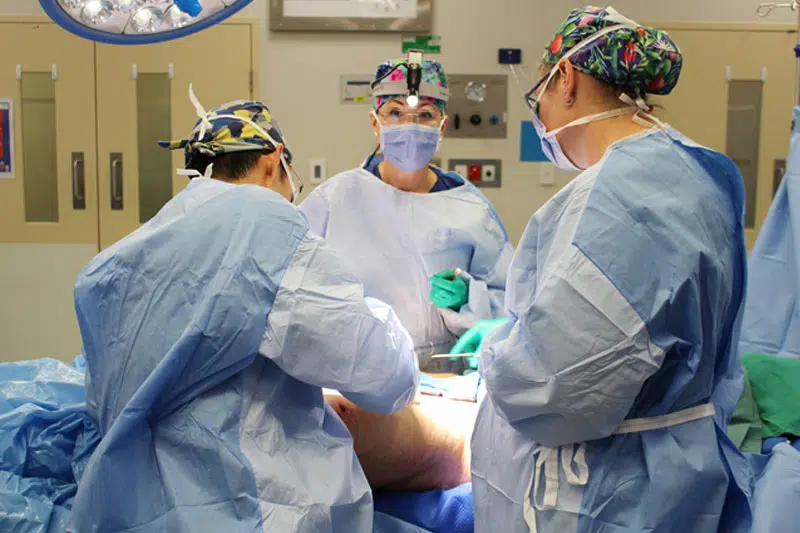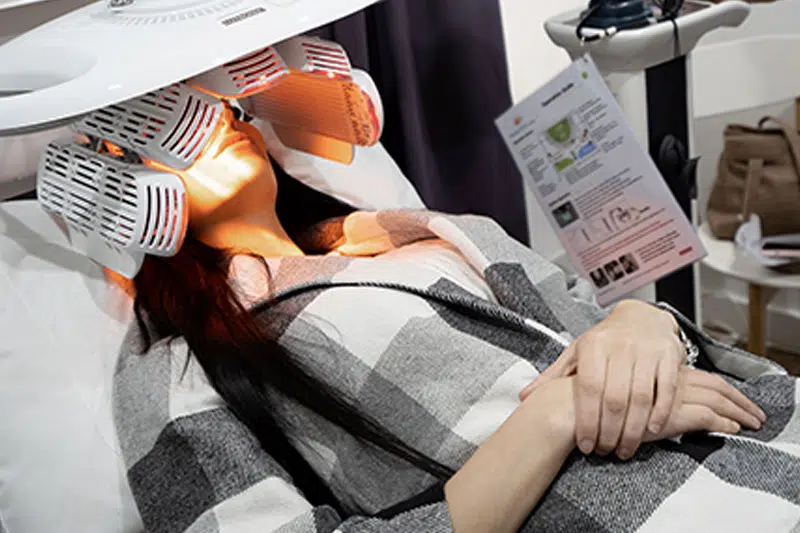Causes and Solutions for Bloating after Plastic Surgery
Undergoing plastic surgery is a decision that comes with much thought and consideration. However, it’s also important to consider the post-operative phase, which can bring about unexpected concerns. One such concern that isn’t often discussed but quite prevalent is post-surgery bloating. In this blog we will discuss more about this condition, helping you understand why it happens, how long it lasts, and how to tackle it effectively.
Plastic surgery, like any other form of invasive procedure, has its share of side effects and recovery symptoms. It’s crucial to remember that every person’s body reacts differently to surgery, and healing times can vary. Bloating, although not severe, can cause discomfort and anxiety, particularly when it’s unexpected
Being prepared for post-surgery recovery is just as important as the preparation leading up to the surgery itself. Knowing what to expect can help you manage your recovery more effectively and potentially speed up the healing process.
Postoperative bloating is a common occurrence that can cause discomfort and distress. Melbourne Specialist Plastic Surgeon Dr Carmen has a vast experience guiding patients through the recovery process.
Take our Plastic Surgery Quiz to find out if you’d be a good candidate and if you are ready for cosmetic surgery.
What Is Bloating?
You’ve probably heard the term “bloating” used quite a lot, but what is bloating exactly? Bloating is a sensation of increased abdominal pressure, often accompanied by physical distension. It’s a common symptom that can occur for a variety of reasons, not just post-surgery. Bloating can make you feel uncomfortable, and your abdomen may appear larger than usual.
Bloating can be a symptom of a variety of conditions, ranging from simple indigestion to more serious health concerns such as liver disease or cancer. However, in the context of post-surgery recovery, it’s usually a temporary symptom related to the body’s response to the trauma of surgery. It’s important to differentiate this temporary post-surgery bloating from chronic bloating related to other health conditions.
Causes of Bloating After Plastic Surgery
Bloating after plastic surgery can be caused by different factors. It’s important to understand these in order to appropriately manage this condition and facilitate a smooth recovery. Here are the most common causes of postoperative bloating:
- Body’s Reaction to Surgery: When you undergo a surgical procedure, your body responds by triggering an inflammatory response aimed at healing the operated area. This response often involves swelling and fluid retention, which can give the feeling of bloating, especially noticeable in the initial phase of recovery
- Impact of Anaesthesia: Anaesthesia, while essential to ensure a pain-free surgery, can have a side effect of slowing down your bodily functions, including your digestive system. This can lead to a build-up of gas in your system, causing a bloated feeling, as your body works to recover normal function in the days following the procedure
- Postoperative Dehydration: Dehydration post-surgery can occur due to inadequate fluid intake or the diuretic effect of certain medications. Dehydration can slow your digestive system, leading to constipation and subsequent bloating
- Changes in Diet and Activity Levels: After surgery, many people experience changes in their appetite or dietary habits, often resulting from the effects of anaesthesia or pain medications. Eating less than usual or a diet low in fibre can cause constipation, which can then result in bloating. Similarly, decreased physical activity, a common occurrence in the early recovery phase, can slow your metabolism and contribute to a build-up of gas in your system
- Medication Side Effects: Certain medications prescribed after surgery, including pain relievers, can have side effects such as constipation, which can lead to bloating. It’s crucial to communicate with Dr Carmen if you experience persistent bloating after starting a new medication
Remember, if you’re experiencing persistent bloating or other discomforts after plastic surgery, it’s important to consult Dr Carmen for advice. She can guide you with tailored advice to aid in your recovery.
How Long Does Bloating Last After Surgery?
The duration of post-surgery bloating can vary greatly from person to person. Some people may only experience bloating for a few days, while others may find it lasts for a few weeks. The length of bloating often depends on the type of surgery, the individual’s overall health, and their body’s response to the surgical procedure.
Remember, it’s normal for the body to take time to adjust and heal after surgery. If you’re experiencing persistent bloating that lasts for more than a few weeks, or if the bloating is accompanied by severe pain, it’s important to seek medical attention. It could be a sign of a more serious complication.
It’s important to remember that patience is key when it comes to recovery from plastic surgery. Your body has undergone a significant change, and it needs time to adapt and heal.
Download Dr Carmen’s Guide to Cosmetic Surgery Recovery
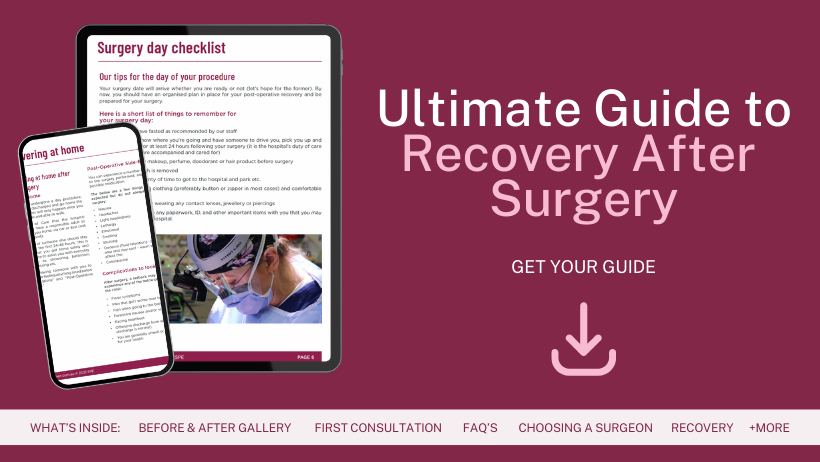
Tips to Avoid Bloating Before and After Surgery
Postoperative bloating can be an uncomfortable part of your recovery after surgery. While it often reduces over time as your body heals, there are strategies you can adopt to help manage and minimise bloating in the meantime.
- Maintain Adequate Hydration: Staying well-hydrated is vital in maintaining normal digestive functions and preventing constipation, a common cause of bloating. Try to drink plenty of water throughout the day. You can also consider adding high-water content foods to your diet, like fruits and vegetables, to help maintain hydration levels
- Follow a Fibre-Rich Diet: A diet high in fibre can help stimulate digestion and prevent constipation. Foods rich in fibre include whole grains, fruits, vegetables, and legumes. But remember to increase your fibre intake gradually, as a sudden increase can sometimes exacerbate bloating
- Incorporate Light Activity: Once you’ve been cleared by Dr Carmen, incorporate light activities like walking into your routine. This can help stimulate your digestive system and reduce the accumulation of gas in your body, thereby minimising feelings of bloating
- Be Mindful of Eating Habits: Eating too quickly, overeating, or consuming gas-producing foods can lead to bloating. Try to eat smaller meals more frequently rather than three large meals, and chew your food thoroughly. Limit gas-producing foods such as beans, lentils, broccoli, onions, and carbonated drinks if you find they exacerbate your bloating
- Medication Adjustment: If you suspect that a medication you are taking is contributing to your bloating, discuss this with Dr Carmen. She may be able to adjust the dosage or provide an alternative medication to alleviate the symptom
- Use of Over-the-Counter Remedies: Certain over-the-counter products can help relieve bloating and gas, such as simethicone. However, before starting any new medication, it is essential to consult with Dr Carmen
Bloating after plastic surgery can be uncomfortable, but it’s important to remember that it’s a common part of the recovery process. Understanding what bloating is, and why it occurs, can help you to manage this symptom effectively.
FAQs about Bloating after Plastic Surgery
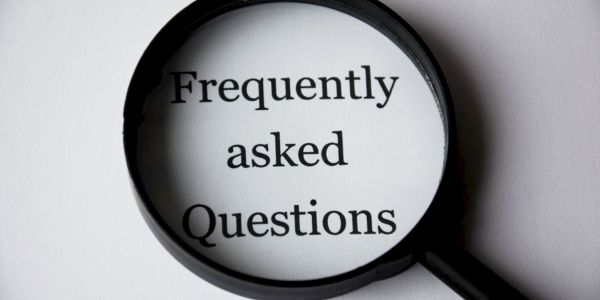
Is it normal to experience bloating after plastic surgery?
- Yes, experiencing bloating after plastic surgery is a common occurrence and is usually part of the body’s natural healing process. When you undergo a surgical procedure, your body’s response often involves inflammation and fluid retention, which can lead to a bloated feeling. This is particularly true for surgeries like liposuction or abdominoplasty where a significant amount of tissue is manipulated. Additionally, anaesthesia, which is used during most surgical procedures, can slow down your digestive system. As your body recovers from the effects of anaesthesia, you may experience a build-up of gas, which can result in a bloated feeling. Remember, bloating should gradually decrease as your body heals. If bloating persists or is accompanied by severe pain or other alarming symptoms, it’s important to contact your surgeon.
How long does bloating last after plastic surgery?
- The duration of postoperative bloating can vary widely among individuals and is dependent on several factors, including the type of surgery performed, the person’s overall health, and their lifestyle habits. Most of the times, the most noticeable bloating occurs during the first week following surgery, gradually reducing over the subsequent weeks. However, in some cases, bloating may persist for a few months, especially following extensive procedures.
Can my diet affect bloating after surgery?
- Absolutely, your diet can significantly influence the degree of bloating you experience after surgery. Consuming a diet that’s low in fibre or not eating enough can slow down your digestive system, leading to constipation and subsequent bloating. Therefore, incorporating a fibre-rich diet, including whole grains, fruits, and vegetables, can help stimulate digestion and reduce bloating. Hydration is also crucial. Dehydration can further slow your digestive system, so be sure to drink plenty of fluids. However, you should be mindful to avoid foods and drinks known to cause gas and bloating, such as certain types of vegetables (like broccoli and onions), carbonated drinks, and high-fat or spicy foods.
How can I alleviate bloating after my plastic surgery?
- There are several strategies to alleviate postoperative bloating. Ensuring you stay adequately hydrated by drinking plenty of fluids can help maintain normal digestion and prevent constipation. Incorporating a fibre-rich diet can further enhance digestive health. Once you’ve been given the all-clear by your healthcare provider, introducing light activity like walking into your routine can stimulate your digestive system and help alleviate bloating. It’s also important to be mindful of your eating habits. Eating too quickly or overeating can cause bloating, so take the time to eat slowly and consider smaller, more frequent meals. If your bloating is persistent, your doctor may recommend over-the-counter remedies or might review and adjust any medications you’re currently taking that could be contributing to bloating.
Should I be worried if I’m experiencing severe bloating after surgery?
- While mild to moderate bloating is a common postoperative symptom, severe bloating or bloating that worsens over time can be a cause for concern. If you’re experiencing intense bloating, especially when accompanied by other symptoms like severe pain, nausea, vomiting, or fever, you should seek medical attention immediately. Such symptoms could indicate a more serious complication such as an infection, bowel obstruction, or internal bleeding.
Further Reading about Body Procedures with Dr Carmen
- Read Dr Carmen’s Liposuction Page
- Read Dr Carmen’s Abdominoplasty Page
- Read Dr Carmen’s Blog about Recovery after Body Lift Surgery – Tips & Timeline
- Read Dr Carmen’s Blog about Recovery after Liposuction – Tips, Timeline and FAQs
- Read Dr Carmen’s Recovery after Surgery Page
Medical References about Bloating After Surgery
- Bloating after surgery – the facts! – Australian Society of Plastic Surgeons
- Why am I so Bloated after Plastic Surgery? – Australasian Society of Aesthetic Plastic Surgeons
- Why Am I Bloated? -WebMD
- Bloating 101: Why You Feel Bloated – WebMD
Further Reading about Body Procedures with Dr Carmen
- Read Dr Carmen’s Blog about Compression Garments after Body Lift
- Read Dr Carmen’s Blog about How Can I Reduce Swelling and Bruising After Body Lift Surgery
- Read Dr Carmen’s Blog about How to Reduce Scars after Body Lift Surgery


